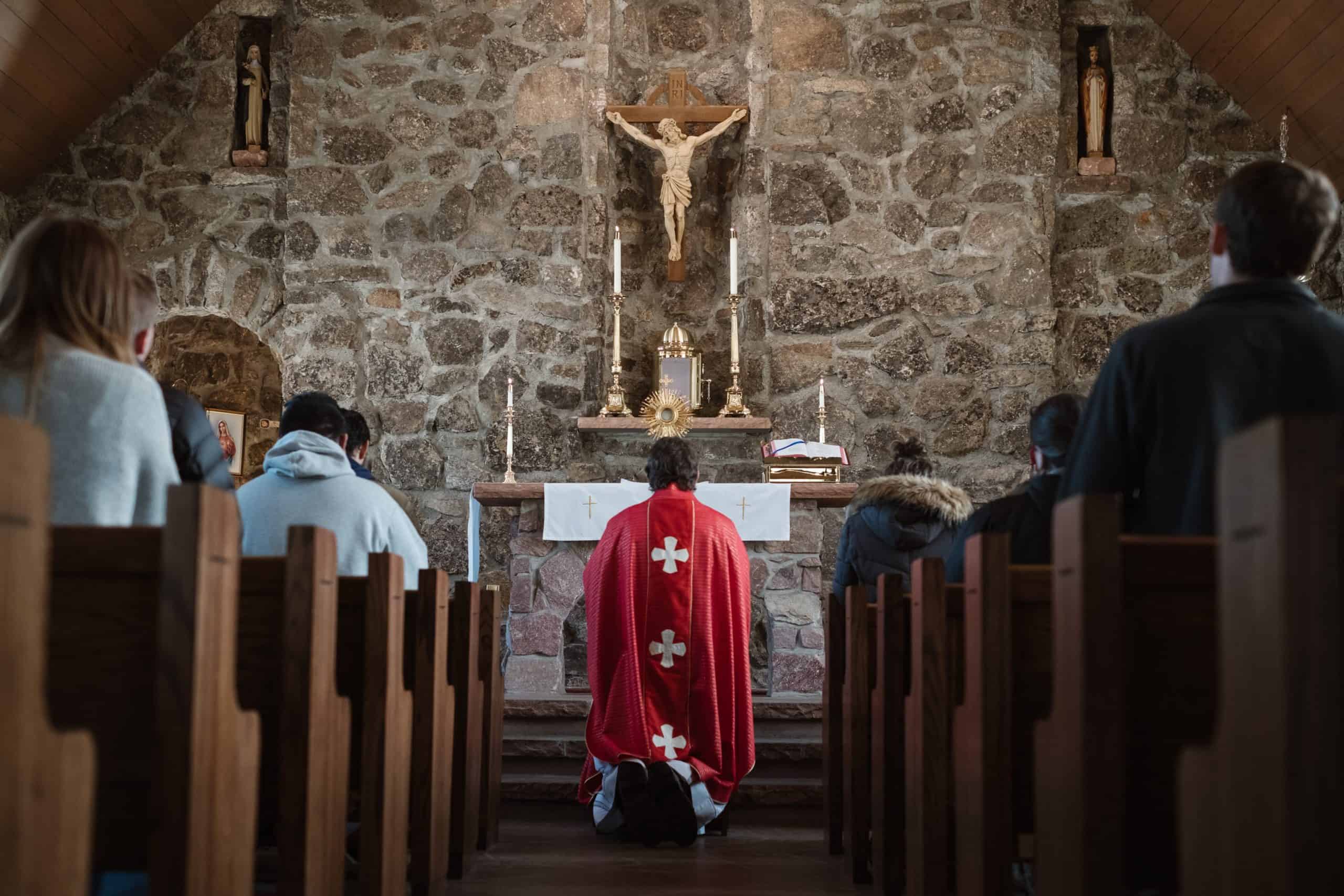On May 8, the New York Times published an op-ed titled “Christianity Gets Weird,” which presents an ecumenical religio-political movement that is becoming prevalent among millennial Christians. The movement has apparently taken on the name “Weird Christians.” They have found solace in the Latin Mass. And these are not just Catholics we are talking about: they are Episcopalians, Lutherans, and members of other churches whose histories entailed a separation from Rome to begin with. Yet the Latin Mass unites them, although there is more to it than that.
These “Weird Christians” profess that they have been jaded by modernity and all it has to offer. They have rejected the American political system, claiming to be neither Republican nor Democrat. As Burton describes it in her article, “Weird Christianity is equal parts traditionalism and, well, punk: Christianity as transgressive alternative to contemporary secular capitalist culture.”
The article was certainly intended for a more general audience, with a sociological approach, which is typical for a publication like the New York Times. It remained more in the realm of politics and social issues than an actual study of this form of worship with its “anachronistic language and sense of historical pageantry.”
Within days, the National Catholic Reporter published a response titled “Are ‘Weird Christians’ really ‘punk,’ or just elitist?” Jamie Manson’s critique was not about the recourse that this movement has taken to the Latin Mass. In fact a merit of her article is that it recognizes the importance of the sacraments and sacramentals, the spiritual aspects of worship that were omitted in Burton’s presentation.
Rather, what Manson holds against Burton’s article is its interview with Rod Dreher, author of The Benedict Option and icon of the so-called “Rad Trad” 1 movement within the Catholic Church. It is because of this association that Manson critiques “Weird Christians” as “elitist,” a type of Christianity which she says claims “that their religious devotions are somehow more intellectually rigorous and their spiritual desires deeper and vastly superior.”
However, I think that Manson has mistakenly equated “Weird Christians” as being “Rad Trads” in a different wrapping. Whereas the “Rad Trads” are stereotyped as being mainly white, conservative Roman Catholics, “Weird Christians,” as mentioned before, include Catholics as well as other non-Catholic sects of Christianity who do not subscribe to either of the top two political parties in the United States. Instead some self-identify as socialist or Marxist–political views that seem to be out of the norm for the stereotypical traditionalist Christian. This aspect is what makes these Christians claim the adjective “weird” to begin with.
This dialectic raises a frustration in me: Why does having a particular liturgical taste have to be shoved within any sociopolitical box?
I enjoy the Latin Mass as well as a “guitar mass,” yet I place no loyalty to any particular political party. I don’t think that makes me “weird.” I simply follow Catholic Social Teaching, a doctrine that is not fully embodied within any of our political parties. I enjoy having a certain knowledge regarding various liturgical expressions and devotions, but I’m not “elitist.” I am a first-generation Filipino-American from a lower middle-class family with a public school education. Much of what I’ve come to know and love about my faith has been through my almost fifteen years of discernment in religious life based upon what was first taught to me by my parents. In short, I don’t fit into any of the boxes that Burton or Manson propose. In fact, I refuse to be shoved into any box.
Appreciating the Latin Mass with Gregorian Chant should not mean that I am a “conservative,” just as appreciating the folk guitar Mass in English should not mean that I am a “progressive.” It may be that either of these phenomena can be pointed out in the Church, but we should not equate correlation with causation.
In music, harmony is the way consonant notes in a musical interval can offer a beautiful sound together while still maintaining their respective tonal identity. This concept can apply to the holistic Christian experience: my liturgical preference and my sociopolitical leanings find their harmony in me, yet one has nothing to do with the other. It should not be “weird” for an appreciation of the richness of different liturgical expressions to be harmonized with a certain dissatisfaction with the sociopolitical status quo.
Liturgy is supposed to be timeless, the human entrance into eternity here on earth. As spiritual, rational beings, we all have a desire for timelessness. Nevertheless, as Christians we are called to hold this desire in harmony with entering fully into our time, as Christ did.
The challenge that Millennial Christians face is the dialectic of sociopolitical categorizing or being categorized according to one’s liturgical preference. Such a move equates to a weaponization or demonization of a form of worship. This is not harmony; this is discord. At the end of the day, we are not called to be “weird,” or “punk,” or “elitist.” Rather, Jesus called us to imitate him, and such an imitation receives no other name than “Christian.”
—
Photo by Josh Applegate
- “Rad Trad” is short for “Radical Traditionalist,” the name of a movement of Roman Catholics (mostly millennials) who are outspoken about the superiority of the Latin Mass and of pre-Vatican II ecclesiology ↩


